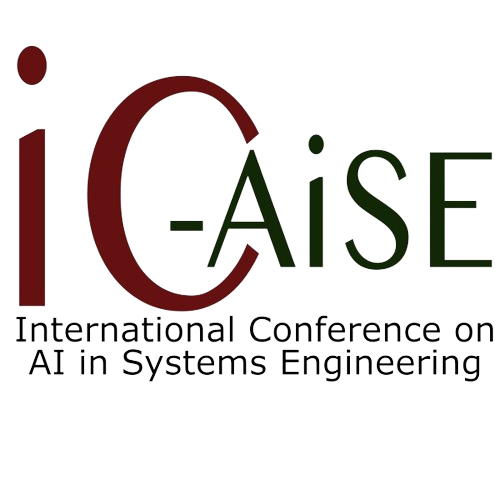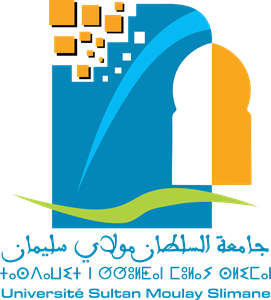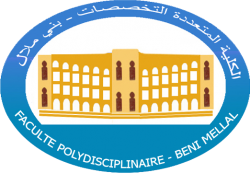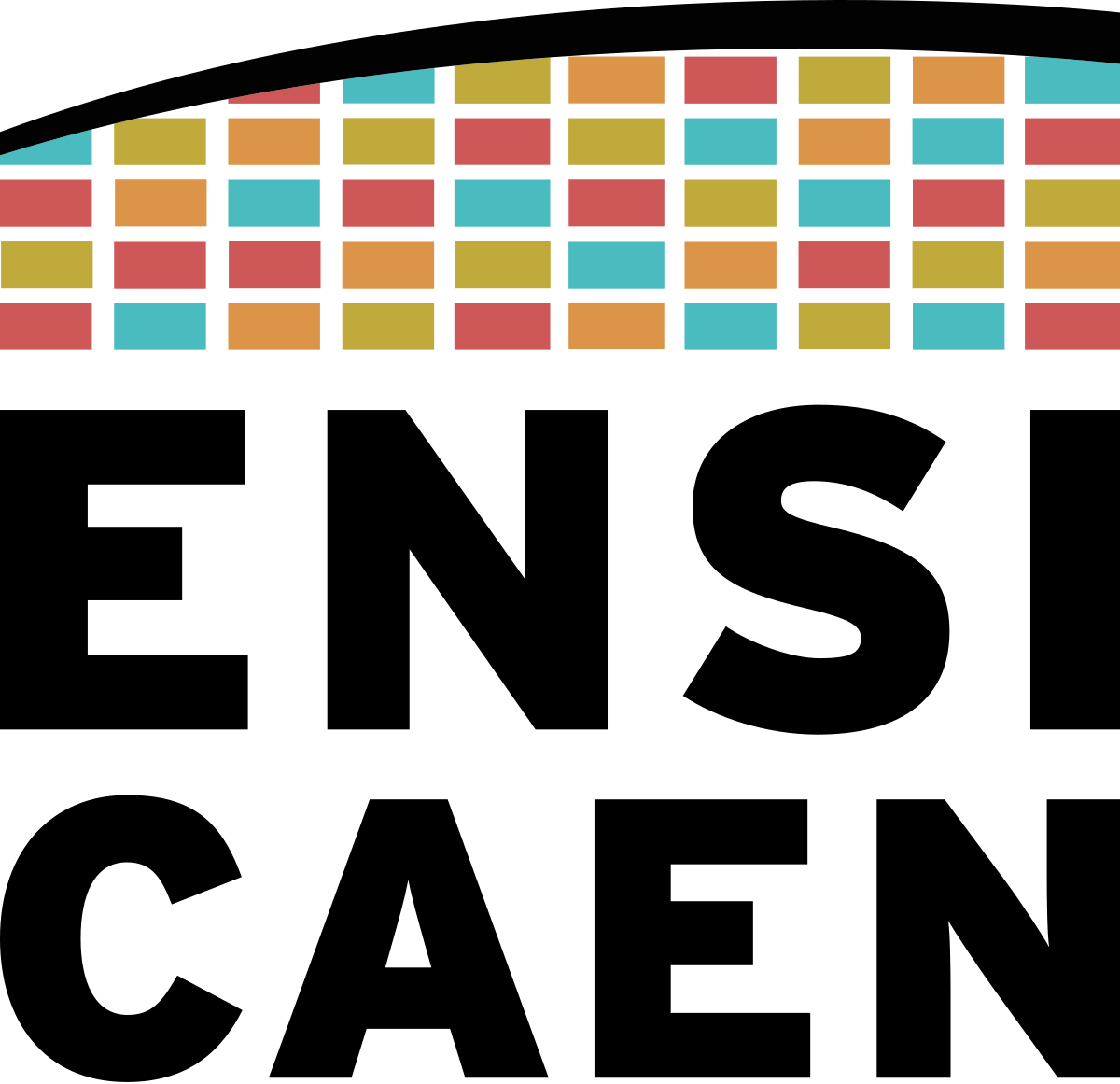
International Conference on AI in
Systems Engineering











|
|
|
|
Invitation The organizing committee of the International Conference on AI in Systems Engineering (IC-AISE'2026) is pleased to invite you to Beni Mellal, Morocco on 23 and 24 April 2026 to meet researchers from various research laboratories around the world. IC-AISE is a privileged moment of transversal scientific exchanges. During the two days, the IC-AISE will bring together researchers and young researchers to address issues arising from fields related to the use of artificial intelligence as well as the security of new telecommunications systems (Smart Cities, LiFi technology, Autonomous and connected vehicles, Energy-efficient small cell networks, automation of security protocols, etc.). We look forward to welcoming you in Beni Mellal!
Aims The main objective of this International Conference is to allow interested parties to better discover current advances in fields related to Artificial Intelligence and its applications in different engineering domain. It will offer specialists the opportunity to establish privileged contacts in the scientific community, in particular with other laboratories and research teams. In addition, this international symposium will allow French-speaking researchers to discuss their work and initiatives; and will be able to give doctoral students the opportunity to gain a broad overview of their field of research and to benefit from a first contact that is both rigorous and benevolent with all the related activities. Finally, it will also be an opportunity to share on the perspectives and projects in progress. This edition will be held from 23 to 24 April 2026 at FPBM-USMS. Vice-Chair
Pr. Miloud FRIKEL
Main Axes Main AxesThis symposium will focus on the following main axes: Artificial Intelligence and Its Applications
Smart Cities and Intelligent Cars
Internet of Things (IoT)
Big Data
Emerging Telecommunications Networks
Information Theory and Systems
Smart and Precision Agriculture
Signal Theory and Systems
Computer Security
Mobile Edge Computing
Wireless Sensor Networks
Energy Optimization and Renewable Energy
Embedded Systems
Mathematics and Application in System Engineering
Optimization Problems
Workshop on Image Processing and Smart Cities Image processing plays an essential role in the labelling of images for Smart Cities. Indeed, at the heart of the infrastructure of these smart cities, images captured by surveillance cameras, sensors and drones are often abundant and varied. Image processing, through artificial intelligence and machine learning, not only enables these images to be analyzed in real time to detect crucial information such as traffic, pedestrians, or incidents, but also automatically labels this visual data. These labels or metadata are then used to enrich Smart Cities databases, enabling more efficient resource management, better urban planning, and a proactive response to citizens' needs, thus helping to make cities smarter and more connected. For more details see Workshop.docx
Speciale Session Renewable Energy and Smart Cities
The renewable energy sector has undergone great changes recently and is gaining more and more importance as it is seen as a practical solution and an operational alternative to a set of challenges and constraints that the world faces in many areas, particularly with regard to the economy, environment and climate. Perhaps the increasing demand, environmental constraints, increasing use of polluting fossil energy sources, technical problems and associated technological development, stimulate scientific and technical research to the need to research new operational and business models, as well as advanced infrastructure and modern technological means that keep pace with this important sector and help establish smart cities integrating electronic design, embedded systems, personal skills for solutions smart technologies, ICT, renewable energies, etc. Smart cities are built on smart infrastructure that integrates technology-based services, social learning and targets governance and institutional improvement.
Keynots Speakers Biography : Dr. Christophe ROSENBERGER is a Full Professor in computer science at ENSICAEN - Director of the GREYC research lab, France. Christophe Rosenberger obtained his PhD in Information Technology from the University of Rennes 1 in 1999. His PhD thesis work was undertaken at ENSSAT in Lannion between 1996 and 1999 in the field of hyperspectral image processing. He joined the ENSI de Bourges school of engineering in Bourges (known now as INSA Centre Val de Loire) as associate professor in 2000. In 2007, he joined the ENSICAEN school of engineering in Caen as full professor. He is actually director of the GREYC research lab composed of 180 members. He belongs to the SAFE (Security, Architecture, Forensics, biomEtrics) research group in the GREYC research lab. His current work focuses in the domain of cybersecurity, in particular research activities in biometrics (keystroke dynamics, soft biometrics, evaluation of biometric systems, fingerprint quality assessment…) and digital forensics. He has authored or co-authored over 200 international publications and co-supervised 25 PhD thesis. Title : AI for Biometrics Summary : Biometrics has for objective the identification of individuals or their identity verification for cybersecurity purposes such as authentication. Using AI in such systems is not new for attacks or countermeasures. The fast evolution of Deep Neural Networks (DNN) for biometrics brings new trends, some of them are directly inherited by these models. This keynote has for main goal to illustrate the main issues for building cybersecurity solutions in biometrics. Practical applications will be given. Biography : Dr. Mohammed MSAAD was educated at the EMI (Ecole Mohammadia d’Ingénieurs) where he held an assistant professor position in September 1978. He started his research activities at the LEESA (Laboratoire d’Electronique et d’Etude des Systèmes Automatiques) where he prepared an engineering thesis on the adaptive control of industrial phosphate drying furnaces at the OCP (Office Cherifien des Phosphates) In November 1982, Mohammed MSAAD joined the LAG (Laboratoire d’Automatique de Grenoble) to prepare a PhD thesis of the INPG( Institut National Polytechnique de Grenoble, on the fundamental features of the adaptive control and its applicability, which he obtained in April 1987. In April 1988, he held a research position at the CNRS (Centre National de Recherche Scientifique) with an affectation in the LAG. In September 1996, Mohammed MSAAD held a professor position at the ENSICAEN (Ecole Nationale Supérieure d’Ingénieurs de Caen) where he founded a control process laboratory in 1997 which became a control group at the GREYC UMR CNRS in January 2004. He had several important scientific and collective responsibilities, namely the director of the GREYC UMR CNRS from January 2012 to Marsh 2016. Since September 2022, Mohammed MSAAD is Emeritus Professor attached to the Systems Engineering Laboratory of Caen. The research activities of Mohammed M’SAAD are mainly devoted to the fundamental, methodological and applied features of the identification, observation and control of dynamical systems. This leads to two contributions to system engineering. The first one consists in an adaptive predictive partial state modal control approach that has been successfully used in several industrial applications. The second one is an engineering framework for the high gain observer design after four fruitful decades of a fundamental research activity to handle the crucial problems, namely unknown inputs, unknown parameters, arbitrary long time-delay, noise measurement sensitivity and peaking phenomena. Title : An Ingenious Tribute to Kalman Estimation Biography : Dr. Miloud FRIKEL is an Associate Professor at National Graduate School of Engineering and Research Center (ENSICAEN), and head of SATE's Department (Embedded Systems and Control), and he is the Deputy-Director of the Systems Engineering Lab of Normandy (LIS). Sine 2008, Miloud FRIKEL is an Associate Professor at National Graduate School of Engineering and Research Center (ENSICAEN), and head of SATE's Department. From 2003 to 2008, he was with the R&T (Networks and Telecommunications) Department of the IUT of Caen (Normandy University). From 1998 to 2000, Dr. Frikel was with the Signal Processing Lab, Institut for Systems and Robotics, Institute Superior Tecnico, Lisbon, as a researcher in the field of wireless location and statistical array processing. And from 2000 to 2003, he worked in the Institute for Circuit and Signal Procesing of the Technical University of Munich, Germany. M. Frikel is member of German Foundation : Alexander von Humboldt Stiftung. Title : Artificial Intelligence: Algorithmic Approaches and Scientific Applications Biography : Dr. Yassine Sadqi received his MSc and his PhD in Computer Science with a focus on computer security from Ibn Zohr University, Faculty of Sciences Agadir, Morocco, in 2012 and 2015, respectively. From 2017 to 2021, he was an Assistant Professor at Sultan Moulay Slimane University. As of February 2021, he become an Associate Professor. Dr. Sadqi’s is the vice-president of the African Research Center of Information Technology & Cybersecurity. He is a Senior Member of the IEEE, ACM Professional Member, and a Member of OWASP. Dr. Sadqi has made contributions in the fields of Web security, authentication protocols, network security, and cybersecurity. He has published several peer reviewed research articles in international journals, book chapters, and conferences/workshops. Furthermore, He has served and continues to serve on executive and technical program committees and as a reviewer of numerous international conferences and journals. Title : AI in Cybersecurity: A Game Changer for Attackers and Defenders.
Biography : Dr. Olivier Gehan received his master degree in electrical engineering from the National School of Engineering Ensicaen in 1995. In 2000, he received the Ph.D. degree in Electrical Engineering from Caen University. Since 2000, he is an assistant professor at Ensicaen where he teaches control theory for both continuous and discrete time systems and observer design techniques. Olivier Gehan is a researcher at the LIS laboratory and his researches mainly concern identification, nonlinear control and observation techniques with applications in the fields of power electronics, chemical engineering and autonomous vessels. He received his Habilitation à Diriger des Recherches (HDR) in 2017.. Title : Driverless Driving: The Future Of Intelligent Transport. Summary : Driverless driving represents a major transformation in the field of transportation, driven by rapid advances in artificial intelligence, sensor technologies, and intelligent communication systems. Autonomous vehicles are designed to perceive their environment, analyze real-time data, and make accurate decisions without direct human intervention. This technology has the potential to significantly improve road safety, reduce traffic congestion, and enhance mobility efficiency. Moreover, driverless driving supports sustainable transport by optimizing energy consumption and reducing emissions, making it a key component of the future of intelligent transportation systems.
Biography : Dr. Mathieu Pouliquen received his Engineering degree from the Ecole Nationale Superieure d'Ingenieurs de Caen, France, in 2000, then the PhD in Automatic Control from the University of Caen, in 2003. He was appointed Assistant Professor at the University of Caen in 2004, since 2021 he is Full Professor. He is a Researcher at the LIS laboratory and his research interests include linear and nonlinear system identification. Title : Shared Intelligence: Some Models and Applications. Summary : Shared Intelligence refers to intelligence that emerges from collaboration and information sharing between multiple agents, such as humans, AI systems, machines, and connected platforms. Instead of relying on a single decision-maker, shared intelligence improves results by combining different skills, perspectives, and data sources.
In terms of applications, shared intelligence is used in many fields, such as:
Overall, shared intelligence is important because it enables more accurate, robust, and efficient decisions by integrating multiple sources of knowledge and capabilities.
Biography : Dr. Morgane Joly is a CTER at University of Caen Normandy in the SAFE team at GREYC lab. After an engineering degree at ESIEE Paris, she studied the coexistence between Bluetooth Low Energy (BLE) and Wi-Fi through the use of Machine Learning (ML), for her thesis (CIFRE) in collaboration with NXP Semiconductor . Nowadays, she dedicates herself to the detection of malicious interferences in wireless low power protocols. Title : Contribution to the study of improving the radio coexistence of a wireless sensor network by implementing embedded algorithms based on artificial intelligence. Summary : The ISM band is an unlicensed band where emission restrictions are relaxed compared with the licensed band. This has led to a proliferation of communication protocols (Wi-Fi, Bluetooth Low Energy (BLE), Zigbee, etc.), despite the absence of any guarantee of spectrum availability. While narrow-band, low-power protocols make it possible to optimise energy for short-range communications and ultimately extend the battery life of IoT devices, their methods of accessing the radio environment have limitations when it comes to guaranteeing good reception conditions in the event of high radio activity in the frequency band used.For this study we focused on improving the interference management of the BLE receiver. Its weaknesses are symptomatic of protocols optimised to be energy-efficient. Wi-Fi uses a relatively high level of power and broadband frequencies, compared to BLE, during transmissions, contributing significantly to BLE interference. We have specifically studied this problem with the case of late arrivals of interference in relation to the freezing of the gain index of the low-noise amplifier (LNA). This configuration is the most dammaging to the optimum compromise between linearity and receiver noise, which is supposed to be guaranteed by the convergence of the LNA gain. The setting up of our study is based on the following observation: due to the random nature of interference, collecting sufficient data on each channel to accurately predict interference on each channel requires very long simulation and measurement times. The type of data set produced in the end will lead to a large model with enormous computational requirements. This study presents the evaluation of several machine learning algorithms predicting the LNA gain index or the inability to receive the future packet, using a restricted history of receiver operating metrics and the output is the optimal Automatic Gain Control (AGC) index to be used for the reception of the next packet. As a result, we give the radio the ability to anticipate the appearance of an interferer during payload reception. The final evaluation of the system showed a significant improvement in the Packet Error Rate (PER). In particular, prediction of the AGC makes it possible to broaden the range of packets that can be received.
Proceedings Partners The proceedings of IC-AISE'2026 will be published by Springer: Communications in Computer and Information Science (CCIS) (Indexing: SCOPUS, INSPEC, WTI Frankfurt eG, zbMATH, SCImago, etc.)
The Microsoft CMT service is used for managing the peer-reviewing process for this conference. This service was provided for free by Microsoft and they bore all expenses, including costs for Azure cloud services as well as for software development and support.
Calendar to Remember
Programme |

















